For anyone who has been keeping up with anime terminology and slang popularly used in the otaku sub-culture (both in Japan and abroad), you have no doubt run across the term moe. Probably quite often, in fact. Though the term itself mostly is used to refer to the sense of adoration or affection toward a given character, it can also be used in reference to a character (or actions by said character) which would elicit such reactions. One of the popular theories is that the term was first inspired by Hotaru, which is what we’re going to look at today!
But first, we should discuss just what moe is, exactly. The term first started appearing online between 1993 to 1995 within otaku communities on open BBS systems, precursors to the world wide web as we know it today.1
The term started to appear more frequently outside of otaku circles and used more frequently by the population at large in the early 2000s, and today is actively used in marketing and a part of the “cute Japan” culture.
But what does it mean, you ask? Well, according to John Oppliger from AnimeNation:2
While the most common form of moe used to be a protective adoration of sweet and innocent little girls, there is now maid moe, “megane” (glasses) moe, “skumizu” (school swimsuit) moe, idol moe, robot moe, and probably an infinite number of other specific varieties of moe. Moe has also become synonymous with cuteness.
(emphasis added)
So if we are to assume that the concept of moe is one in which you feel a strong emotional connection with a cute young fictional girl, and all the better if it’s one who is weak and you feel protective of, then you can see how Hotaru easily checks all those boxes. As we’ve discussed before, Hotaru was actually quite popular among Sailor Moon fans. She’s also pretty weak and, assuming the reaction by ChibiUsa, Haruka, Michiru, and Setsuna is anything to go by, people definitely want to take care of her.
There’s also a nice and convenient connection with Hotaru’s last name, Tomoe, which could have provided a source for this word as it spread throughout Japanese otaku culture. Though this is one of the fore-running theories into the origins of the term,3 I’m afraid that I don’t believe that Hotaru makes a good candidate as the source for this term.
While Hotaru’s last name certainly uses the same kanji (which isn’t very commonly used in the first place), this is probably what’s known in linguistics as a “false friend”; i.e., though they may appear to be connected on their surface, there’s actually no connection between the words.4
First and foremost, Hotaru was almost never referred to by her last name in either the anime or manga. Even among fans, she was (and is!) referred to nearly exclusively as Hotaru-chan. If anything, the name Tomoe would have mostly been used when referring to Professor Tomoe, Hotaru’s father.
Second, while by no means definitive, it would be pretty abnormal for the second half in someone’s last name to be used as a nickname or to be adopted as a slang term. While I don’t have any hard data on this, anecdotally-speaking I can definitely say that by and large, the first half of someone’s name (either first or last) is used when making a nickname in both English and Japanese. E.g., Mamo-chan, Usa-chan, Mina-P, Osa-P, and the list goes on.
So if not Hotaru, what is the source? Well, the other common theory suggests that the it may be from the character named Moe Sagisawa, the main character of the 1993 anime known as Dinosaur Planet (恐竜惑星; Kyouryuu Wakusei).5 The appealing part of this theory is that the name matches up and her character design certainly fits.
The third theory for the inspiration behind moe is that it is reference to the manga named Smash into the Sun! (太陽にスマッシュ!; Taiyou ni Smash!)6 which ran from January to August 1993 in Nakayoshi. The main character, Moe Takatsu, was a young tennis star and there were apparently cases in the manga in which her fans would cheer her on by shouting “Burn it up, Moe-chan!” (萌ちゃん燃え燃え; Moe-chan moe moe).
It’s not hard to imagine that the kanji 燃える (moeru; to burn up) got transposed with the kanji in her name (萌; moe) which could very well have been been further used to cheer or express your adoration for a character you really like.
So as you can see, we have a lot of different possibilities and not a lot of firm answers. Though I can’t give you a straight answer of which is the definitive truth, the best I can do is leave you with my opinion and let you make up your own.
Personally, the most convincing explanation I’ve found is on a Japanese doujin terminology website.7 The author surmises that the term probably does come from fans of Moe Sagisawa (of Dinosaur Planet). Whenever Moe would find herself in trouble, the male lead would shout out “Moeeee!” which was likely copied by fans of the anime online. Ultimately, this meaning was then further reinforced with Moe Takatsu in Smash into the Sun! and was then possibly made even more common with Hotaru’s rise to popularity.
So, now that you have all of this information, what do you think about the source of moe? Do you think that Hotaru epitomizes the concept of moe as many online sources seem to imply? I’d love to hear more about what other people think since – at the risk of dating myself – the concept of moe wasn’t yet a thing in the west when I first started watching anime!
References:
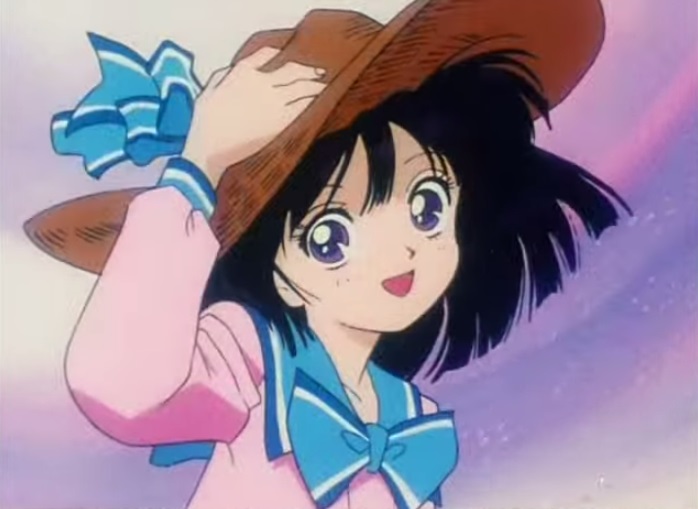

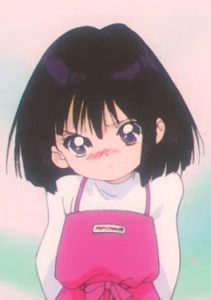
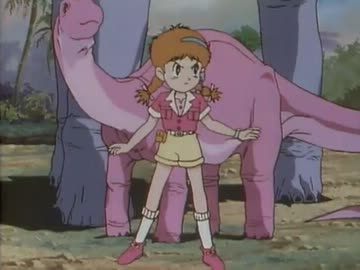
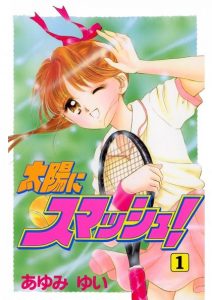
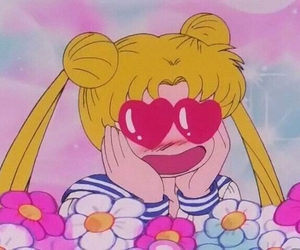

I’m pretty sure she’s not THE basis, but maybe A basis for it, at least she may have helped the term continue on.
It’s such a shame that it went from such an innocent concept (big brother/sister instincts) to some pretty crazy stuff these days.
I guess what really confuses me about all this is that Hotaru really isn’t a “moe” character at all anyway…
In the Sailor Moon Musicals (Sera-Myu). Hotaru is extremely moe in the traditional sense of the word. Hotaru Tomoe died to her best friend (ChibiUsa/Dark Lady) because she could not understand what it meant to not being friends anymore. So she refused to fight and died because of that. Then ChibiUsa sang a solo about it which was the saddest song in the entire musical. In fact, I’d say it was the saddest song across a lot of years of SeraMyu.
“Second, while by no means definitive, it would be pretty abnormal for the second half in someone’s last name to be used as a nickname or to be adopted as a slang term. ”
I think it’s pretty common to take somebody’s last name and merge it into a common phrase.
For example,
“Oyasumina-Sayashi” – Riho sayashi as opposed to the normal “Oyasuminasai”
“Otsuka-reina” – Reina Tanaka as opposed to the normal “Otsukare”
Any word is fair game. It’s not just restricted to firstnames or lastnames.
Riho has her nickname of “RihoRiho” but she also has her saying of “Oyasumina-Sayashi”. Why not both?
My issue here wasn’t so much with the use of her last name, per se, but only the second half of her last name. In your examples, they use the full last names.
Also just want to say that NHK’s “Japan-Easy” covers Moe in lesson 20.
Talks about how the origin of the character means “to sprout” as in a seedling that just sprouted from its seed.
Similar to the American term “Fresh off the boat”. Very easily taken advantage of. In need of protection. Unaware of how the world works. Things like that. So if you do make another write up. Don’t forget to talk about the Kanji character that moe comes from. Even though moe is typically written without Kanji.